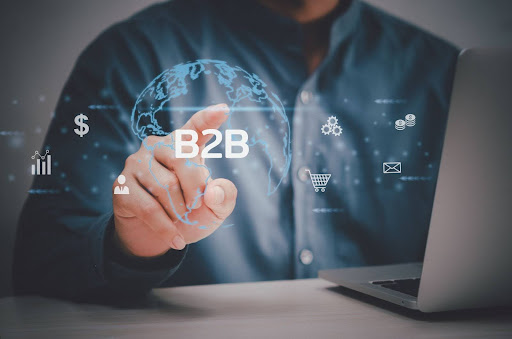


In today’s business world, online visibility defines competitiveness. Traditional outreach methods like networking events or cold calls are no longer enough to sustain meaningful engagement or generate qualified leads. Instead, companies now rely on B2B digital marketing to build awareness, nurture prospects, and strengthen long-term relationships. This strategic approach combines SEO, data analytics, automation, and personalized communication to reach key decision-makers and drive measurable business outcomes.
B2B marketing focuses on selling products or services to other businesses rather than individual consumers. The intent is more research-driven, rational, and focused on ROI.
Key characteristics of B2B marketing include:
Understanding this landscape helps businesses create marketing strategies that align with the buyer’s journey — from awareness to final purchase.
A strong SEO and content strategy ensures your business ranks high where potential clients are searching. For B2B companies, implementing B2B SEO helps improve visibility among industry-specific audiences and decision-makers in competitive urban markets. It’s not just about visibility — it’s about establishing credibility and expertise.
Core elements to prioritize:
When content and SEO work hand-in-hand, they position your brand as a trusted knowledge source within your niche.
Paid advertising ensures faster visibility and access to highly targeted audiences. For B2B, platforms like LinkedIn and Google Ads are especially effective for reaching key decision-makers.
Effective paid campaign practices:
Smart ad strategies help businesses allocate budgets efficiently, ensuring every click contributes to measurable growth.
Social media for B2B is not about viral content — it’s about trust, reputation, and dialogue. It serves as a bridge between brand storytelling and professional engagement.
Best practices for B2B social engagement:
These practices help businesses foster trust and maintain top-of-mind awareness in professional circles.
B2B relationships don’t end after one interaction — they evolve through consistent communication. Email and marketing automation simplify this process while keeping it personal.
Key components of effective email strategies:
Automation ensures each lead receives the right message at the right time without overwhelming your sales team.
Data-driven insights guide continuous improvement in B2B marketing. Tracking key metrics helps identify what works, what doesn’t, and where opportunities lie.
Metrics that shape decisions:
By analyzing performance consistently, marketers can adjust tactics and optimize spend for better long-term outcomes.
Success in modern marketing depends on integration. Each digital channel — from SEO and paid campaigns to email and social media — must work in harmony. When data, content, and automation align, the result is a cohesive experience for the buyer.
A truly effective B2B digital marketing strategy creates a unified system where every interaction strengthens brand recognition and customer confidence. This means aligning sales and marketing teams, using shared performance dashboards, and ensuring consistent messaging across all platforms.
When every department collaborates toward common objectives, businesses don’t just generate leads — they create lasting partnerships.
Today’s B2B buyers are more informed than ever. They rely on online research, peer recommendations, and transparent brand communication before engaging.
Emerging trends shaping B2B marketing:
Staying agile to these shifts ensures businesses remain relevant and credible in an evolving marketplace.
In an increasingly competitive digital world, having a clear strategy isn’t enough — executing it with precision matters even more. Businesses that collaborate with experienced partners can streamline processes, enhance creativity, and accelerate growth.
That’s where a trusted B2B digital marketing agency comes in. With the right team, companies can access specialized expertise across SEO, paid campaigns, automation, and analytics. Each channel works together to deliver consistent results and measurable ROI.
At GBIM Technologies, the focus lies on helping businesses create meaningful digital connections that translate into tangible growth. Every campaign is backed by strategy, research, and real-world understanding. The team believes in simplifying marketing through data, creativity, and collaboration — ensuring every digital effort moves your business forward.
B2B digital marketing focuses on promoting products or services to other businesses through online channels. It helps build brand awareness, generate qualified leads, and nurture client relationships in a data-driven and measurable way.
B2B SEO in Mumbai allows local companies to rank higher in search results when targeting business clients in metropolitan and regional areas. It increases brand visibility among decision-makers who are actively searching for industry-specific solutions.
Google Ads enables precise targeting of business professionals searching for specific solutions. It helps generate high-intent leads, increases visibility quickly, and complements long-term SEO efforts within a B2B digital marketing strategy.
While traditional SEO targets individual consumers, B2B SEO in Mumbai focuses on reaching decision-makers and companies. The content and keywords are tailored to address professional pain points, ROI-driven goals, and industry relevance.
Yes. Integrating Google Ads with your SEO efforts enhances your overall visibility and lead generation. It ensures your brand appears in both paid and organic searches, creating a unified and effective B2B digital marketing approach.
309, Rupa Solitaire,
Sector-1, Millennium Business Park,
Mahape, Navi Mumbai,
Maharashtra (400 710), INDIA.
Write to us at
hr@gbim.com